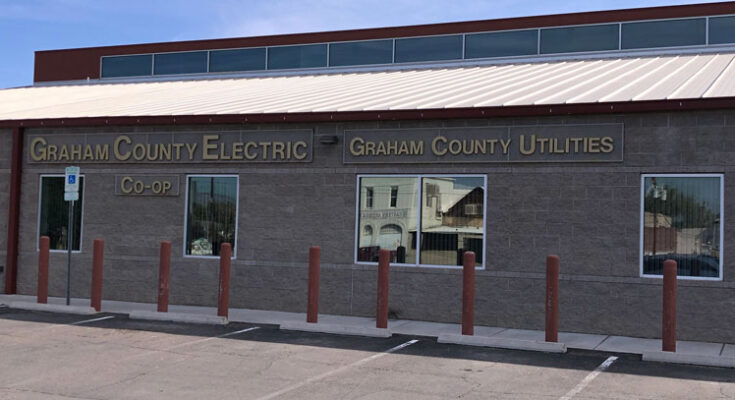Column By Mike Bibb
For some incomprehensible reason, I seem to be a frequent recipient of mind-bending correspondence from various corporate entities.
Gila Herald readers may recall a few months ago I was informed by my life insurance provider my monthly premiums would be increasing if I wished to renew my policy.
A standard procedure, I’m sure.
Upon reading a little further into the letter, I discovered the rates would rise from $115.41 per month to $2,619.44 per month.
Needless to say, I thought there must be some kind of error. I was the same guy with the same policy, in reasonably good health, and not involved in a hazardous occupation – other than being retired and still married to the same woman.
Who, coincidentally, happened to be the beneficiary of the policy. Her name and cell phone were listed on the insurance application: “Call in case of emergency.” A legal requirement should someone else claim to be my wife in hopes of pocketing a few insurance bucks.
Well, a conference with my local insurance agent, followed by an inquiry with the company established the newly quoted premium was, indeed, correct. A nearly 2,270% increase in the monthly rate would go into effect unless I cancel the policy.
After about three or four seconds of contemplative thought and discussion with my agent, we canceled the policy – realizing bankruptcy was my only other option.
Thinking my three Congressional representatives would be interested in hearing the insurance story, I sent each one a letter, with documentation, outlining the situation.
To date, I haven’t heard a word from any of them.
Things were uneventful for the next four or five months. No insurance discussions or rate increases, although I do receive multiple sales pitches from companies asking if I’d be interested in buying a $ 9.95-a-month funeral policy. Rates will never go up, they promise, as long as I pay the premiums.
Seems like I’ve heard that before.
Anyway, when checking my mail recently, I received a letter from the Graham County Electric Cooperative in Pima.
Strange, I thought, my home’s utilities didn’t come from GCEC.
Upon closer examination, the letter was intended for my deceased father-in-law – with my mailing address clearly printed upon it.
Kind of out of the ordinary since Floyd – my father-in-law – has been residing at the City of Safford Cemetery for almost 30 years.
Maybe, that’s why the letter was sent to me, knowing he’d be difficult to reach by mail or phone.
As a result, I didn’t believe he would mind if I opened the message to see what was going on.
The note was brief and concise: “Graham County Electric Cooperative, Inc. is pleased to present this check which represents your share of the gas margins (capital credits) from 2005, 2006, and 2007 as these years apply to you. Our employees and directors thank you for your patronage.”
Attached, was a GCEC check for $0.14.
What? Floyd just received an electric cooperative check for 14 cents, covering his capital credits for the years 2005-2007.
I hadn’t realized Floyd must have had a GCEC natural gas meter and connection piped into his cemetery plot. Until now, I didn’t know that was an option. For exceptionally cold winters, I suppose.
After doing the math, the “capital credits” work out to about four-and-a-half cents per year. Less than a nickel. I’m uncertain how much gas he used during that time, considering by 2005 Floyd had already been gone over 10 years.
Even weirder, the postage probably cost four times the amount of the check.
Equally baffling, the check was written on a One AZ Credit Union GCEC account on Oct. 31, 2022. I received the letter three months later on Jan. 28, 2023.
Three months for an ordinary USPS letter to travel nine miles from Pima to Safford? A person could walk the distance and hand deliver the correspondence in a few hours.
I’m sure there are probably some extenuating circumstances in this perplexing development, but for me to receive a $0.14 check for something that occurred 15 years ago, involving an individual that died nearly 30 years ago is a bit unusual.
Question is, what am I supposed to do with it? The check is made to Floyd, not me.
I’ll probably have to consult my tax accountant to determine how this unforeseen inflow of wealth will impact my filing status. Will I be elevated into a higher tax bracket? Should it be considered capital gains, earned income, inheritance, or a gift for 2022/23? Or, simply an accounting snafu?
In the 257,433 pages of IRS Code regulations, there must be a section, subsection, or sub-subsection covering unintended snafus:
“In the unintended event of a nonregulatory snafu, the taxpayer shall be liable for any tax due on that portion of the snafu that was heretofore covered in IRS Bulletin No. 842(e) (h-6), as decided in IRS v Vostrinsky & Sons. Failure to comply may result in confiscation of the taxpayer’s GCEC capital credits in any amounts over $0.10, plus interest, penalties, and possible incarceration of not less than 47 months or more than 120 months. Should taxpayers decrease during this period, the nearest of kin will be required to complete the original terms of sentencing. If there is no immediate relative, the closest neighbor shall voluntarily comply to serve the remainder of the mandated sentence.”
As an alternative, perhaps legal assistance and various court filings are necessary to determine the proper ownership of the $0.14.
Possibly, a text to an attorney can recommend an appropriate course of action. If they can manage to convince a judge and jury it is not my intention to willfully defraud GCEC of their 14 cents – or IRS out of a few pennies in taxes – then a 120-month tour in federal lockup could be avoided.
To be on the safe side, maybe I should simply spend another 60 cents for a postage stamp and return the $0.14 check to GCEC. In actuality, $1.20 in postage would be paid to send, receive, refuse, and return a 14-cent check.
Sounds like the same kind of logic the government uses when planning a yearly budget. No wonder we’re $31 trillion in the hole!
It’s only the beginning of 2023 and already the craziness has started.
I’ve always heard the “Golden Years” were extra special – with a little tarnish along the way – but I had no idea my life insurance would suddenly increase by $2,500 per month while Gila Valley Electric Cooperative decided to send me 14 cents to help with living expenses – or court costs.









